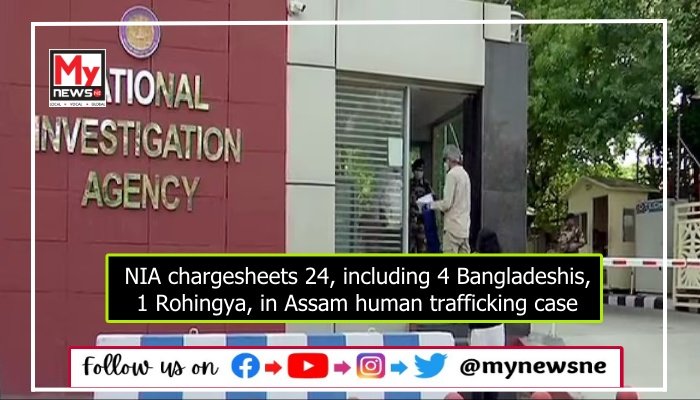NIA Chargesheet Filed Against 24 Individuals in Assam Human Trafficking Case
Guwahati, 6th February: The National Investigation Agency (NIA) has taken significant steps in combatting human trafficking by filing a charge sheet against 24 individuals, including five foreign nationals, in connection with an international human trafficking syndicate. Among those charged are four individuals from Bangladesh and one Rohingya from Myanmar. These individuals were allegedly involved in facilitating the illegal entry of Bangladeshi and Rohingya individuals into India using forged documents.
The chargesheet was submitted before the NIA Special Court in Assam (Guwahati) on Monday, under various sections of the IPC, Foreigners Act, and Passport (Entry into India) Act, 1920, along with Passport (Entry into India) Rules, 1950. Initially, the NIA arrested 29 individuals during extensive raids across 39 locations in Tripura, Assam, J&K, and West Bengal, in collaboration with state police departments. Substantial evidence, including incriminating documents, fraudulent Indian identity papers, bank records, and digital devices, was seized during these operations. Following further investigational leads, four additional suspects were detained in Tripura, bringing the total count to 33.
The case, originally registered by the Assam Police under the Passport Act 1967, highlighted concerns regarding organized human trafficking syndicates trafficking Bangladeshi nationals and Rohingyas of Myanmar origin into India for anti-India activities using forged documents. The NIA later assumed control of the case and re-registered it as RC-01/2023/NIA/GUW.
NIA investigations have revealed the existence of international human trafficking syndicates operating along the Indo-Bangladesh border in states like Tripura, Assam, and West Bengal. These syndicates regularly traffic Rohingyas and Bangladeshis and create forged Indian identity documents to settle them across India.
The syndicates reportedly have links to traffickers and facilitators operating domestically and across the border. They conspire to entice trafficked individuals, arranging their travel, accommodation, and employment in unorganised sectors for meagre wages. Trafficked women and girls, especially Rohingya women, are further exploited through fraud and deception, with some being sold into marriage to older men. Investigations have revealed that Bangladeshi nationals obtained Indian ID documents with the collusion of local authorities, using fake or forged supporting documents and certificates.
Read More: Manipur: MSPDCL Apprehends 21 Individuals in Mass Raid

